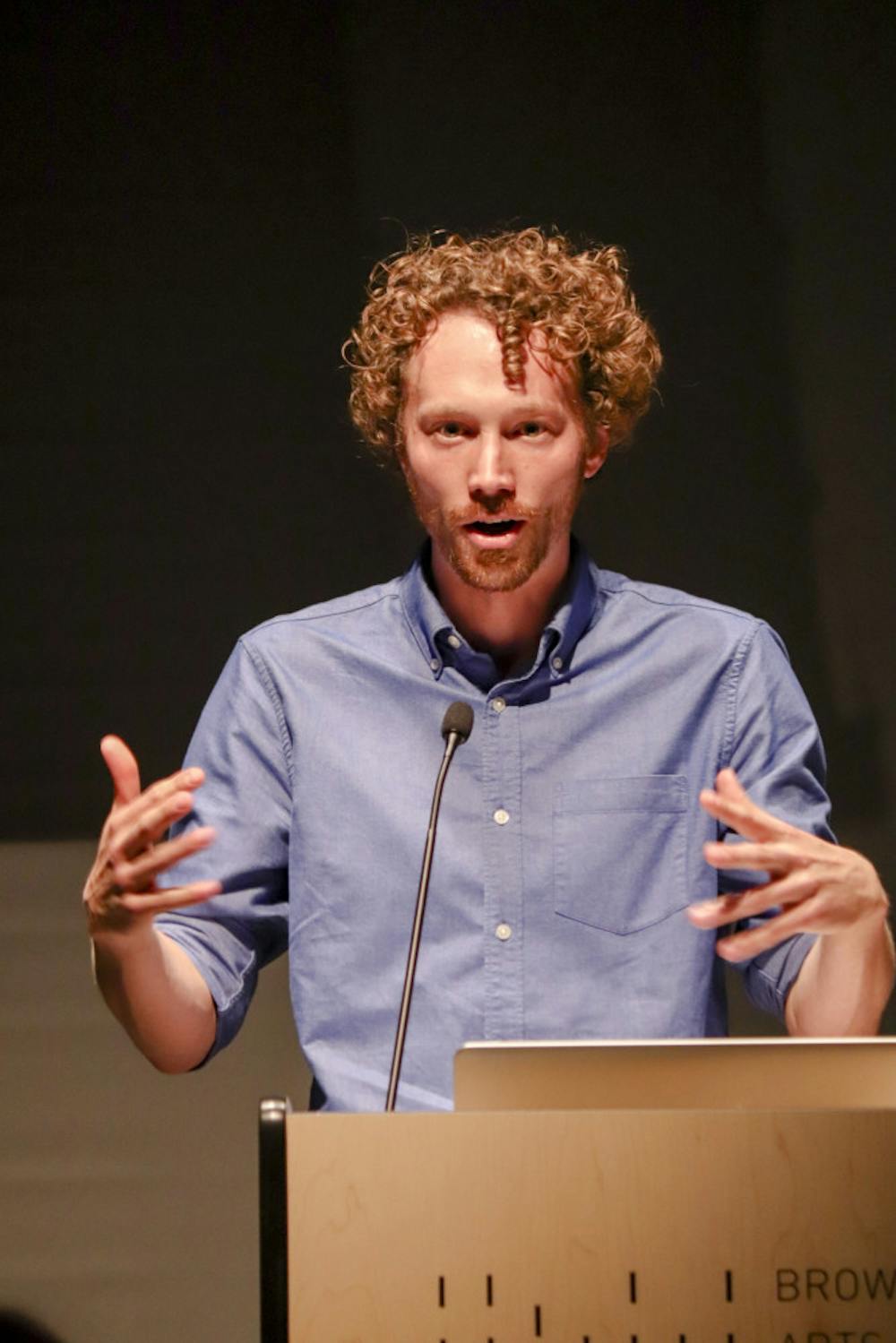“I had a bad experience (that is) haunting me,” said Torey Malatia in his opening remarks Monday, Oct. 23 at the “Sound Ideas: Close Listening, Podcasting, and The New Radio” event, which was co-sponsored by the Brown Arts Initiative and Jonathan M. Nelson Center for Entrepreneurship. Malatia is the current Rhode Island Public Radio general manager, president and chief executive office and co-founder of “This American Life,” a weekly podcast with about 2.2 million listeners, according to its website.
“I discovered that there is one thing that the Internet cannot do,” he continued. The internet, according to Malatia, was unable to teach him how to tie the exceptionally long tie that he was wearing.
“What I have just demonstrated is one way to open a podcast … (by) making the audience wonder, ‘What is happening?’” Malatia said, amid widespread chuckles.
In addition to Malatia, panelists included Morra Aarons-Mele ’98, founder of Women Online and creator of podcast “Hiding in the Bathroom”; Alan Nakagawa, an interdisciplinary sound artist who works as the artist-in-residence at the Los Angeles Department of Transportation, and Sam Harnett and Chris Hoff, founders and hosts of the podcast “The World According to Sound.”
Despite their differing backgrounds, all of the panelists are leaders in thought “who use sound as their artistic and entrepreneurial platform,” said Butch Rovan, director of the Brown Arts Initiative.
The panelists were each given time to introduce themselves and present their experiences and works. Then all five participated in a panel moderated by Malatia.
Aarons-Mele, who is soon launching a podcast about sexism and patriarchal social structures, insisted that it is crucial to have “a relationship with a listener.” She further explained that she feels like she knows some of her own listeners. “Podcasting is so intimate,” she added.
Harnett and Hoff’s podcast is “an evocative, unusual sound rendered in intense aural detail,” according to a Jan. 4, 2017 article published by the Washington Post that was cited in the program of the event. During their presentation, they played an excerpt from their first episode, which featured a recording of mud pots. Harnett said that he and Hoff want their show to be a place where people can hear sounds and formulate their own reactions and ideas.
On starting a podcast, Aarons-Mele said “you have to do it because you are driven to speak your truth.” Harnett advised against making “a knockoff of existing podcasts … you have to be thinking outside of the box,” he added.
During the question-and-answer portion of the event, an audience member asked for the panelists’ takes on the “earbud revolution,” noting that many students use these listening devices. To this, Malatia touched upon a podcaser’s delicate task of “balancing out the desire for some sort of shared social experience … and the power of a private experience.”
After the presentations and panel, Danny Warshay ’87, executive director of the Nelson Center for Entreprenuership took the stage to present about entrepreneurship.
“Our panelists saw a need for something and developed a small solution,” Warshay said, interweaving his expertise with that of the panelists. He then shared some of his experiences and provided tips for aspiring entrepreneurs, highlighting the importance of practicing bottom-up research and finding an unmet need.
Audience member Olivia Katcher ’18, a Herald staff writer, said that both portions of the event emphasized the need to cater to a specific market. An English and history of art and architecture double concentrator who has recently discovered her “entrepreneurial spirit,” Katcher was excited that “both of my passions, entrepreneurship and art … are … colliding.”





